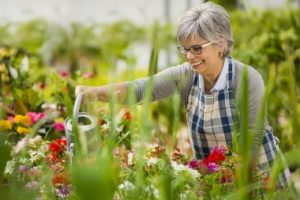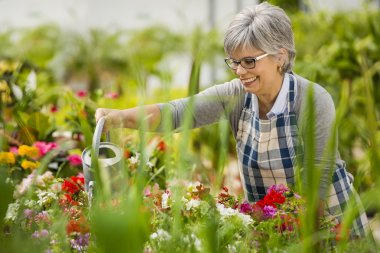As you get older, the need to care for your emotional health becomes more imperative. Emotional health is an important part of the overall health of an elderly person. Seniors who are emotionally healthy can control their thoughts, feelings, and behaviors. They are able to cope challenges, and keep problems in perspective. One activity that can improve the emotional health of seniors is gardening. This article discusses the emotional benefits of gardening for elderly persons.
Many older adults are at risk of having emotional and mental problems, so engaging in activities that improve their emotional wellbeing are crucial to them.
Gardening is an activity that offers multiple physical and mental benefits for everyone. Plants improve the oxygen levels in the surrounding area, helping to relieve problems caused by poor air quality. In addition, gardening reduces the levels of stress hormones like cortisol and adrenaline, which can have negative effects on mood and health. However, there are some emotional benefits of gardening to elderly people in particular.
1. Fosters sense of accomplishment
Many studies have shown that gardening helps reduce depression symptoms in seniors due to a sense of achievement and increased positive emotions associated with tending to plants.
Gardening provides satisfaction from a job well done. It also fosters feelings of accomplishment when you see plants thriving because of your care.
2. Eliminates negative emotions
Gardening can help seniors in eliminating negative emotions. Negative feelings that you may be experiencing (such as boredom, depression, anxiety, and irritability) that are usually not related to specific events can disappear when you’re gardening.
In addition, Serotonin is a natural anti-depressant that boosts happiness and strengthens the immune system. Research have shown that getting your hands dirty in the garden can increase your serotonin levels. Making contact with soil and a specific soil bacteria, Mycobacterium vaccae, triggers the release of serotonin in the body.
3. Clears your mind
Gardening helps you clear your mind by helping you relax and become so involved in the process that it takes your mind off of everything else.

4. Improves focus and concentration
Gardening results in greater concentration for those who enjoy it. The concentration tends to increase when you are interested in other aspects of the garden, such as its beauty, its exotic plants, or other activities in which you can be involved (such as creating a pattern of colors on the lawn).
5. Boosts physical health
Engaging in physical activity will boost your emotional health, and gardening is a wholesome physical activity. Gardening helps you maintain your physical health by clearing your mind and giving it a break from all the daily stresses and worries. A gardener is usually healthier than someone who spends his days sitting at an office desk. Gardening is a great way for seniors to maintain their independence by staying active and looking for something to do.
6. Enhances your social health
Gardening creates a chance to socialize with other gardeners and enjoy the benefits of fresh air, sunshine, and healthy foods. Seniors with an active social network have been shown to have healthier levels of cortisol and a lower risk of becoming depressed. Thus, gardening can improve your social health, which is an important facet of your overall health and wellbeing.
Bottom Line
Gardening offers many physical benefits such as increased oxygen levels in the air as well as reduced stress hormones. These benefits not only improve mood but help seniors stay healthy and stay independent longer.
However, the benefits of gardening for seniors go beyond just improved mood. Gardening is a low-cost way to contribute to environmental health and can be very therapeutic for seniors at home or in their community.








